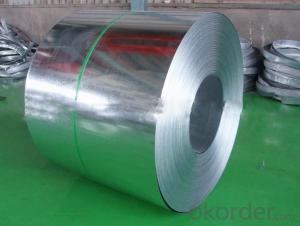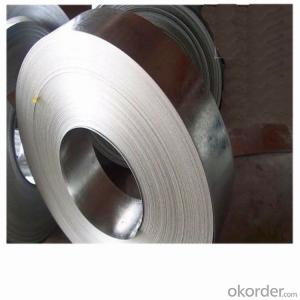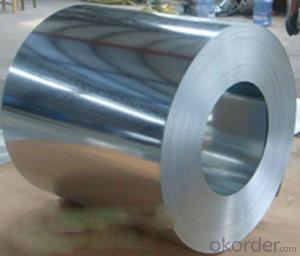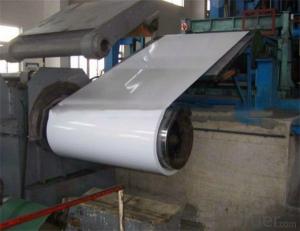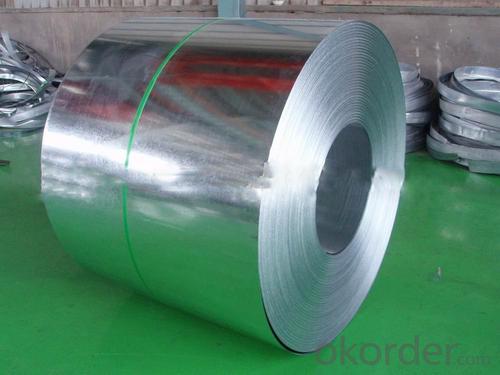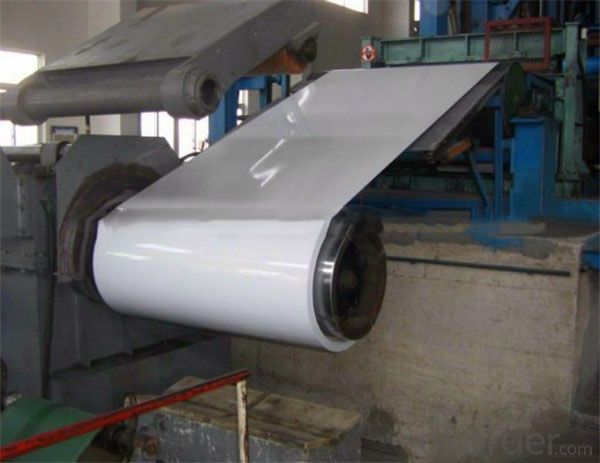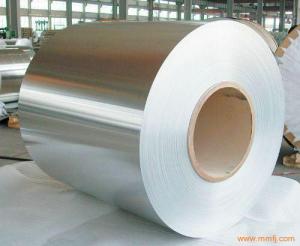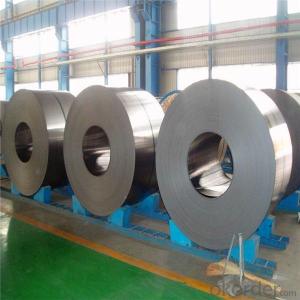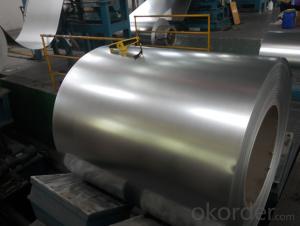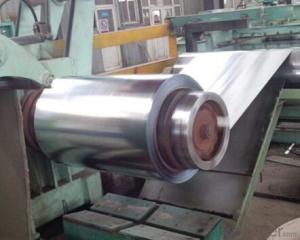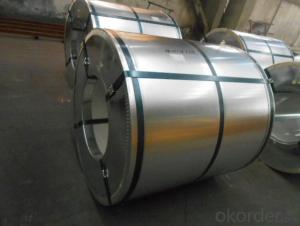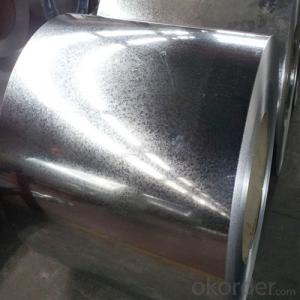Cold rolled Hot Dip Galvanized Steel Coil
- Loading Port:
- Tianjin
- Payment Terms:
- TT or LC
- Min Order Qty:
- 2300 PCS
- Supply Capability:
- 230000 PCS/month
OKorder Service Pledge
OKorder Financial Service
You Might Also Like
OKorder is offering high quality Cold rolled Hot Dip Galvanized Steel Coil at great prices with worldwide shipping. Our supplier is a world-class manufacturer of galvanized steel, with our products utilized the world over. OKorder annually supplies products to European, North American and Asian markets. We provide quotations within 24 hours of receiving an inquiry and guarantee competitive prices.
Product Applications:
Cold rolled Hot Dip Galvanized Steel Coil is ideal for fabricating and manufacturing applications.
Product Advantages:
OKorder's Galvanized Steel Coil is durable, boasts high stiffness and load-bearing qualities, and is recyclable.
Main Product Features:
· Premium quality
· Prompt delivery & seaworthy packing (30 days after receiving deposit)
· Corrosion resistance
· Can be recycled and reused
· Mill test certification
· Professional Service
· Competitive pricing
Product Specifications:
Manufacture: Hot rolled
Coil ID: 508mm
Coil OD: 900-1500 mm
Grade: DX51D+Z
Coating: 30 – 180g/m² (both sides)
Dimensions:
Thickness: 0.2mm – 1.0mm
Width: 600mm, 914mm, 1000mm, 1220mm, 1250mm
Coil Weight: 4 – 6mt
Length: 6m, 9m, 12m
FAQ:
Q1: Why buy Materials & Equipment from OKorder.com?
A1: All products offered byOKorder.com are carefully selected from China's most reliable manufacturing enterprises. Through its ISO certifications, OKorder.com adheres to the highest standards and a commitment to supply chain safety and customer satisfaction.
Q2: How do we guarantee the quality of our products?
A2: We have established an advanced quality management system which conducts strict quality tests at every step, from raw materials to the final product. At the same time, we provide extensive follow-up service assurances as required.
Q3: How soon can we receive the product after purchase?
A3: Within three days of placing an order, we will begin production. The specific shipping date is dependent upon international and government factors, but is typically 7 to 10 workdays.
Q4: What makes stainless steel stainless?
A4: Stainless steel must contain at least 10.5 % chromium. It is this element that reacts with the oxygen in the air to form a complex chrome-oxide surface layer that is invisible but strong enough to prevent further oxygen from "staining" (rusting) the surface. Higher levels of chromium and the addition of other alloying elements such as nickel and molybdenum enhance this surface layer and improve the corrosion resistance of the stainless material.
Q5: Can stainless steel rust?
A5: Stainless does not "rust" as you think of regular steel rusting with a red oxide on the surface that flakes off. If you see red rust it is probably due to some iron particles that have contaminated the surface of the stainless steel and it is these iron particles that are rusting. Look at the source of the rusting and see if you can remove it from the surface.
Q6: What is the difference between galvanized steel and Galvalume steel?
A6: Galvanized steel is metallic coated with Zinc in various coating weights. Minimum recommended for painted metal roofs is G90. Galvalume is a zinc and aluminum coated steel that becomes an alloy and is recommended in either painted or bare applications with a minimum coating weight of AZ50. Galvalume has an excellent performance life in bare exposures. Hence if you are using a bare panel use Galvalume and if painted use either.
Images:
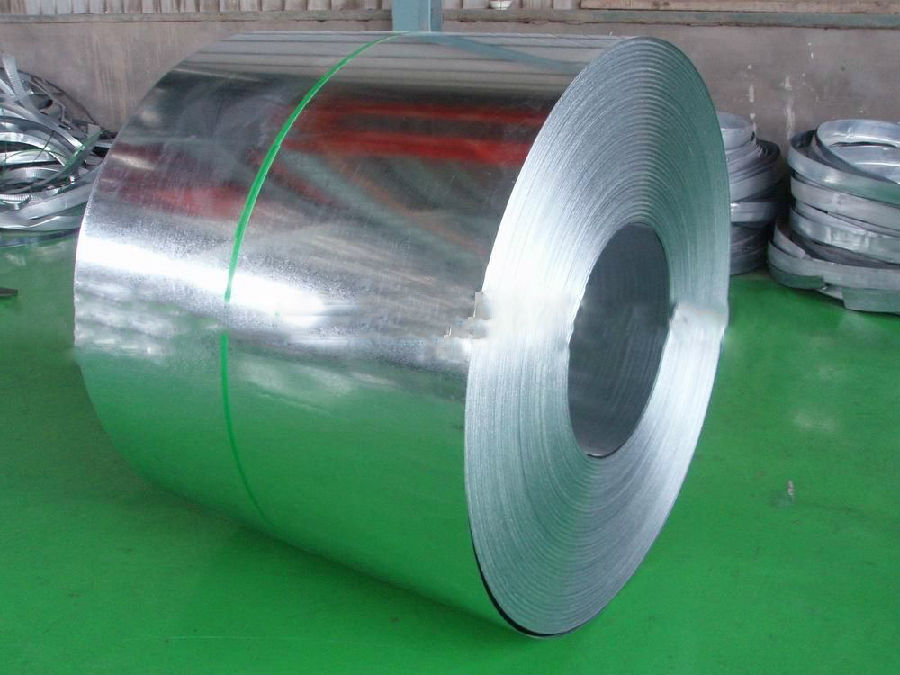
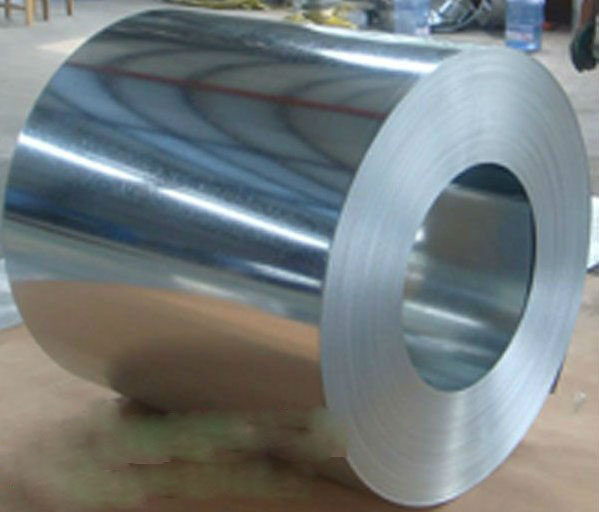
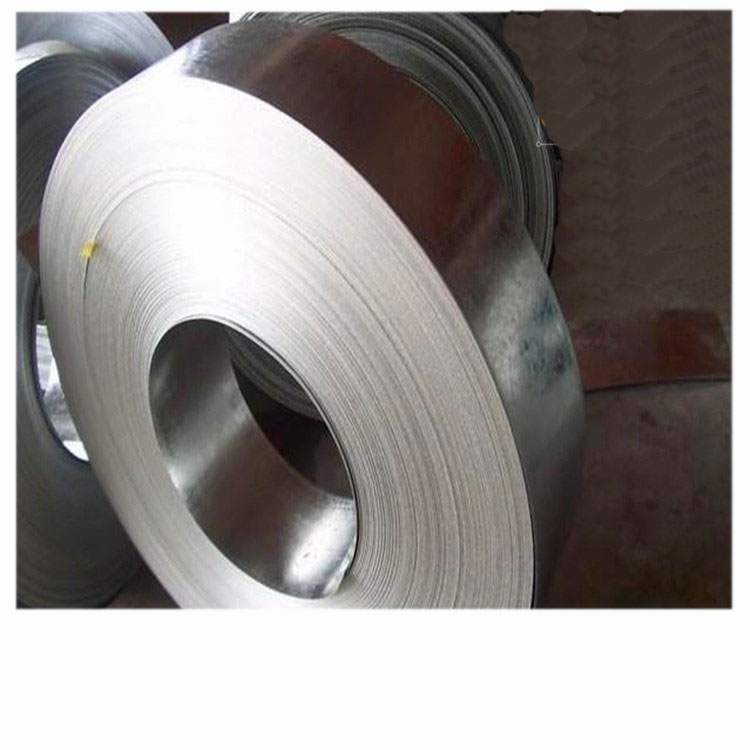
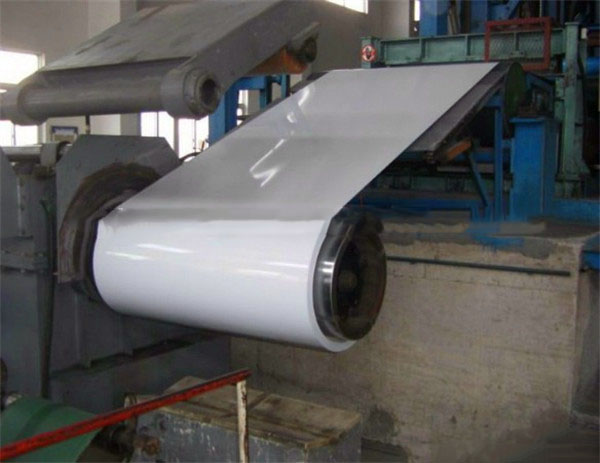
- Q: I have never owned a non-stainless steel chef's knife and have been looking at some to buy recently, but all of them have various degrees of wear and use. They say that the wear is normal for non-stainless steel knives, but how can I tell if it is too much wear, or if the blade is clean?
- cold rolled steel waers as you carve meat. If the blad if to thin you may want a better one. Utica knife in utica N.Y. made them up to about 10 years ago and i still buy them at auctions.
- Q: How is the thickness of a steel coil measured?
- The thickness of a steel coil is typically measured using a device called a thickness gauge or micrometer. This tool consists of a calibrated mechanical or digital system that measures the distance between two opposing surfaces of the steel coil. By placing the gauge on the coil and applying pressure, the thickness can be accurately determined.
- Q: What are the different steel coil surface treatments?
- Some of the different steel coil surface treatments include galvanizing, painting, powder coating, and oiled finishes.
- Q: How are steel coils used in the manufacturing of pipelines?
- Steel coils are used in the manufacturing of pipelines as they are rolled into sheets to form the base material for the pipes. These coils are uncoiled and passed through a series of machines where they are cut, shaped, and welded together to create the desired length and diameter of the pipeline.
- Q: How are steel coils used in the production of prefabricated buildings?
- Steel coils are commonly used in the production of prefabricated buildings as they are rolled into sheets and cut into specific lengths to create the structural components such as beams, columns, and frames. These steel components provide strength, stability, and durability to the prefabricated building, making it capable of withstanding various environmental and structural loads.
- Q: This EN10025 S355JR is a European code for steel, of which the properties can be found here.
- *EN 10 025 S355JR/JO is comes under structural steel catagories. Equivalent standard is-ASTM A 572 Gr 50. -Above areHigher strength micro-alloyed steel. -The above-mentioned structural steel grades may be welded using any of the standard metal arc and resistance welding processes, usually without any special precautions.
- Q: How are steel coils transported?
- Steel coils are typically transported using specialized trailers or railway cars. The coils are securely fastened to prevent movement during transportation and are often stacked to maximize space utilization.
- Q: For my homework we have to fill out a table, but I cannot find some basic uses of these types of steel anywhere:Low carbon steel (iron mixed with lt;0.25% carbon)High carbon steel (iron mixed with lt;1.5% carbon)Stainless steel (iron mixed with nickle an chromium)Titanium steel (iron mixed with titanium)Manganese steel (iron mixed with manganese) Thanks :)
- Low okorder / You say you cannot find there uses anywhere. These all came up using the simplest of web searches. You really need to have a word with your IT teacher as clearly you are not doing basic searches properly.
- Q: How are steel coils used in the production of pipes and tubes?
- Steel coils play a crucial role in the manufacturing of pipes and tubes. They serve as the primary material for shaping the cylindrical structure of these products. The process begins by unrolling the coils and feeding them into a pipe or tube mill, where a series of manufacturing procedures take place. Initially, the steel coils are unwound and straightened to eliminate any bends or twists. Subsequently, the edges of the coils are trimmed to ensure a smooth and even surface, a technique referred to as slitting. Following this, the coils are passed through a forming machine, which bends them into the desired shape. For pipes, the coils are shaped into a circular form, whereas tubes can be molded into different configurations like square, rectangular, or oval. Once the coils have been shaped, they are welded together along their length to create a continuous pipe or tube. This welding process can be accomplished using a variety of techniques, such as high-frequency induction welding, electric resistance welding, or submerged arc welding. After the welding process is complete, additional procedures may be carried out on the pipes or tubes to enhance their properties. These procedures may involve heat treatment, like annealing or quenching, to improve strength or hardness. Finally, the pipes or tubes are cut to the desired length and may undergo further finishing processes, such as straightening, polishing, or coating, depending on their intended application. In summary, steel coils serve as the foundational material in the production of pipes and tubes. They are unrolled, straightened, and molded into the desired shape before being welded together to create a continuous product. Additional processes can be applied to improve the properties and meet specific requirements of the pipes or tubes.
- Q: can you play one?
- Well, my digital piano has a Steel Guitar setting that makes it kind of sound like one, but other than that I know nothing about them.
Send your message to us
Cold rolled Hot Dip Galvanized Steel Coil
- Loading Port:
- Tianjin
- Payment Terms:
- TT or LC
- Min Order Qty:
- 2300 PCS
- Supply Capability:
- 230000 PCS/month
OKorder Service Pledge
OKorder Financial Service
Similar products
Hot products
Hot Searches
Related keywords
